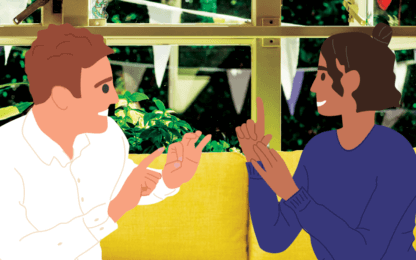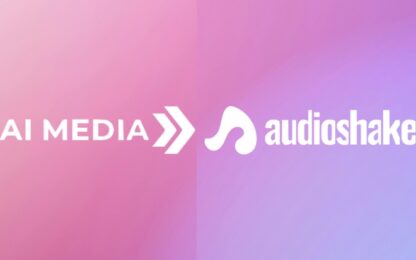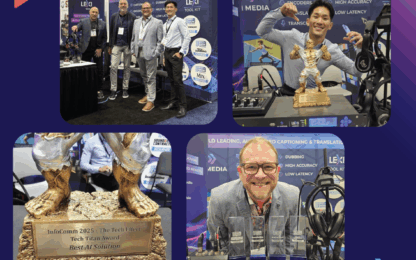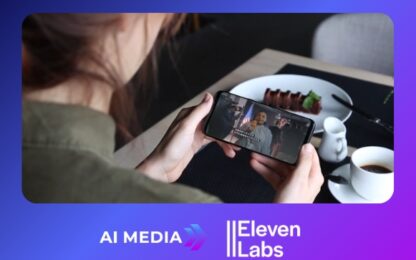
What is Audism? 5 Examples to Learn and Avoid
What is Audism? 5 Examples to Learn and Avoid
Deaf and hard-of-hearing people are more represented in popular culture than ever, but there are still gaping holes in what the hearing community understands about being d/Deaf or hard-of-hearing.
Sadly, many people in the d/Deaf and hard-of-hearing community continue to experience forms of discrimination in their everyday lives. Whether it be communication discrimination (where access is not made possible for someone to communicate), assumptions about what d/Deaf or hard-of-hearing people can or can not do, or being shut out of social or work environments, Audism is still a real problem.
Audism simply refers to the discrimination or prejudice against individuals who are d/Deaf or hard-of-hearing.
Here are five examples of Audism to be aware of so you can avoid these issues, and be welcoming and accessible to the d/Deaf and hard-of-hearing community.
1. Not making the effort to communicate
Even if you have never met a d/Deaf or hard-of-hearing person before and you don’t know how to communicate, don’t fret!
There are many ways to communicate, and many ways to be d/Deaf or hard-of-hearing, so don’t assume anything.
Some people may be able to hear your voice, some may use a hearing aid or cochlear implant and will be able to hear some sound. Others are ‘profoundly deaf’. And all people use different communication methods!
Some d/Deaf and hard-of-hearing people read lips – though this is not an easy task!
Others will rely on sign language and may have an interpreter present, or you may need to communicate by texting or writing things down.
Everyone is different, but make sure you position yourself facing the person so they can see your face and expressions, and be patient with the communication process! If you are not sure about something, just ask!
2. Assuming d/Deaf people can’t do things
Deaf and hard-of-hearing people encounter some confusing questions – for example, “Wait, you can drive?”
Never assume that a person can’t do something just because they are d/Deaf or hard-of-hearing.
Deaf and hard-of-hearing people can do anything! They are stunt people, musicians, artists, lawyers, activists, sportspeople, inventors and everything else under the sun.
3. Approaching deafness as a tragedy
“You’re deaf? Oh, I’m so sorry!”
Don’t be sorry! Deafness isn’t a disease or an illness.
In fact, many d/Deaf and hard-of-hearing people – many of whom consider themselves part of the ‘capital D’ Deaf community – are proud of their d/Deafness. This won’t be the case for everyone, but being deaf is not a bad thing, so don’t apologize.
4. Patronizing behavior
Like we said before, d/Deaf people can do anything.
Saying things such as, “You [do something] so well for a deaf person” can be very offensive.
One very common example is commenting on how ‘well’ someone speaks. Some d/Deaf people use speech and others don’t. The topic might also be sensitive for many d/Deaf people who might have been told that they have to speak a certain way – even by some doctors – or who have been made fun of for not speaking ‘correctly’.
5. Employment discrimination
We shouldn’t have to say it, but workplace discrimination happens a lot.
Deaf and hard-of-hearing people should be given equal opportunity in the workplace.
Never turn someone down for a particular job or a task because they are d/Deaf or hard-of-hearing. Have a discussion with them about any access needs they may have – and work from there. Some employers assume that communicating with someone who is d/Deaf or hard-of-hearing is ‘too much trouble’, but this is absolutely not the case!
Your workplace will be better off from including people with different experiences, different backgrounds and different communication styles.
How Can You Support the d/Deaf and Hard-of-Hearing Community?
The first step is awareness! Take some time to research people’s experiences of d/Deafness and what it means for them. There are some great d/Deaf content creators to follow on social media, including YouTuber Rikki Poynter. Rikki has some wonderful resources on d/Deaf awareness and experience.
And of course – start to make your content accessible! Whether you’re posting on social media, making video content or podcasts, holding online meetings or events, or teaching a class, Ai-Media can help. Ask us how!


